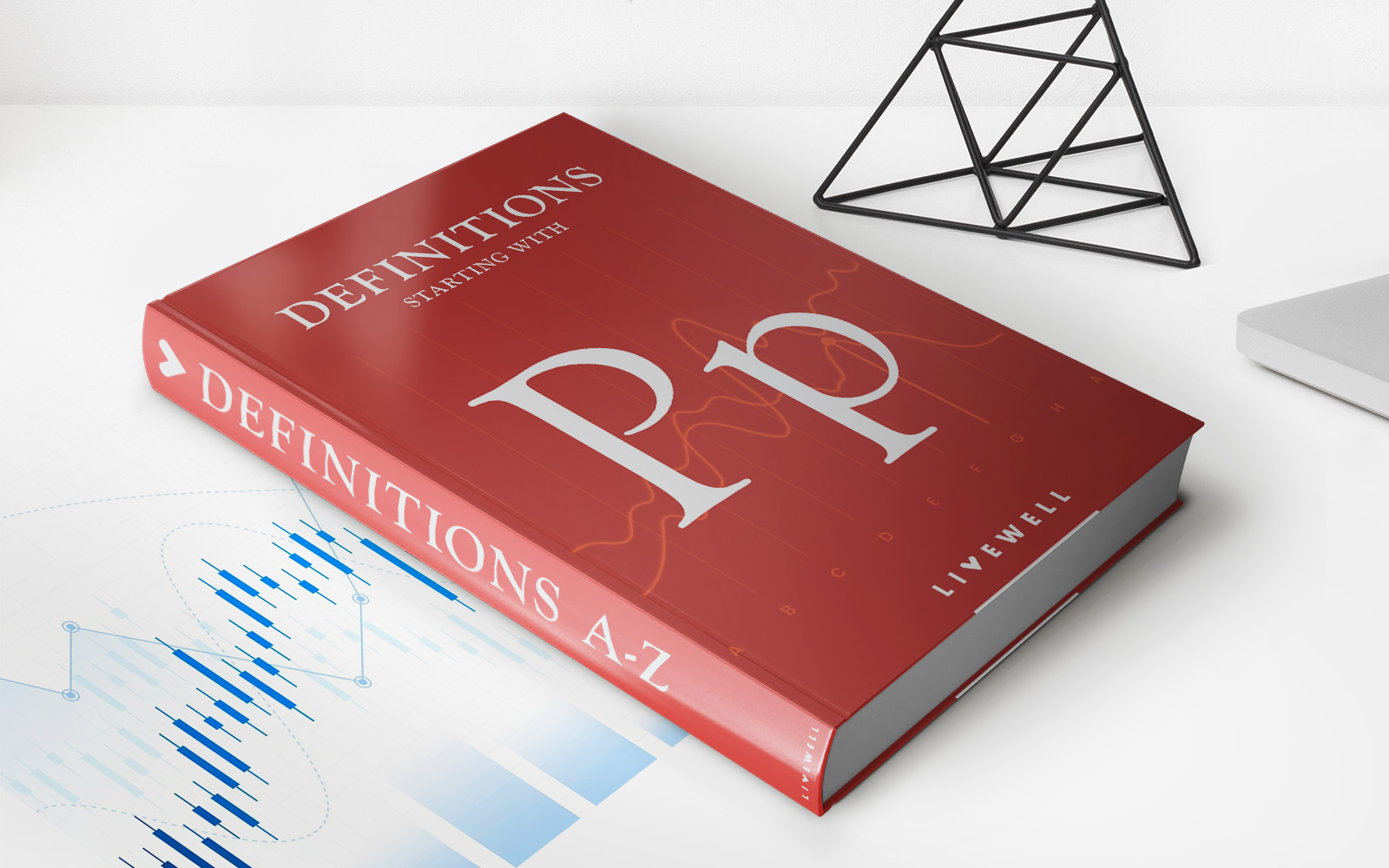Home>Finance>How To Check If A Life Insurance Company Is Legitimate


Finance
How To Check If A Life Insurance Company Is Legitimate
Published: October 15, 2023
Discover the key steps to verify the legitimacy of a life insurance company and ensure your financial security. Learn how to check their credibility in the finance industry.
(Many of the links in this article redirect to a specific reviewed product. Your purchase of these products through affiliate links helps to generate commission for LiveWell, at no extra cost. Learn more)
Table of Contents
- Introduction
- Background on Life Insurance
- Importance of Checking Legitimacy
- Ways to Verify a Life Insurance Company’s Legitimacy
- Check the Company’s License and Regulations
- Research the Company’s Financial Stability and Reputation
- Check for Customer Complaints and Reviews
- Verify the Company’s Accreditation and Professional Memberships
- Consult with Insurance Professionals or Financial Advisors
- Conclusion
Introduction
Life insurance is a crucial financial tool that provides a safety net for your loved ones in the event of your untimely demise. It offers financial protection by providing a lump sum payment to your beneficiaries, allowing them to cover expenses such as mortgage payments, education, and daily living costs.
However, with the increasing number of fraudulent activities in the financial industry, it is essential to ensure that the life insurance company you choose is legitimate and trustworthy. Putting your trust and hard-earned money in the hands of an unreliable or unlicensed insurer can have disastrous consequences.
In this article, we will guide you through the process of checking the legitimacy of a life insurance company. By following these steps, you can gain peace of mind knowing that you are dealing with a reputable insurer that will fulfill their obligations in the event of a claim.
It is important to note that the steps mentioned in this article are general guidelines and may vary based on your location and local regulations. Consulting with a professional insurance advisor or financial planner is recommended for personalized advice.
Background on Life Insurance
Life insurance is a contract between an individual (the policyholder) and an insurance company. The policyholder pays regular premiums to the insurer in exchange for a sum of money known as the death benefit, which is paid out to the policyholder’s designated beneficiaries upon their death.
The concept of life insurance dates back centuries, with early forms of coverage originating in ancient Rome and Greece. However, life insurance as we know it today has evolved to address the financial risks and uncertainties faced by individuals and their families.
Life insurance policies fall into two main categories: term life insurance and permanent life insurance. Term life insurance provides coverage for a specified period, typically ranging from 10 to 30 years, while permanent life insurance offers coverage for a lifetime.
In addition to the death benefit, some life insurance policies accumulate cash value over time, which policyholders can access through policy loans or partial surrenders. This cash value can serve as a source of funds for emergencies, retirement income, or other financial needs.
The life insurance industry is highly regulated to protect consumers. Insurance companies must adhere to strict financial solvency standards and comply with state regulations and licensing requirements. State insurance departments oversee the industry and ensure that insurers meet their obligations to policyholders.
Life insurance plays a vital role in financial planning, providing financial security for families and businesses. It can help replace lost income, pay off debts, cover funeral expenses, and secure the financial future of loved ones. It is an essential component of a comprehensive financial strategy and offers peace of mind knowing that your loved ones will be taken care of when you are no longer there to provide for them.
Importance of Checking Legitimacy
When it comes to choosing a life insurance company, checking their legitimacy is of utmost importance. Here are some key reasons why verifying the legitimacy of a life insurance company is crucial:
- Financial Security: Life insurance is a long-term commitment that requires you to pay premiums for an extended period. Ensuring that the company you choose is financially stable and secure is essential. A legitimate insurer will have the resources to fulfill their obligations, such as paying out death benefits to your beneficiaries.
- Policyholder Protection: Legitimate insurance companies are regulated and bound by laws and regulations that are designed to protect policyholders. By opting for a reputable insurer, you can have confidence that your rights as a policyholder will be safeguarded throughout the duration of your policy.
- Claims Payment: The primary purpose of life insurance is to provide financial support to your beneficiaries upon your passing. However, unscrupulous or fraudulent insurance companies may deny or delay claim payments, leaving your loved ones in a difficult situation. Trustworthy insurers will honor their obligations and facilitate a smooth and timely claims process.
- Product Transparency: Legitimate insurers provide clear and transparent information about their products, including policy terms, coverage, exclusions, and premiums. This enables you to make informed decisions based on your needs and budget. On the other hand, illegitimate insurers may engage in deceptive practices, misrepresent policy features, or hide important information.
- Peace of Mind: Selecting a legitimate life insurance company offers peace of mind. Knowing that your policy is backed by a reputable insurer instills confidence that your loved ones will receive the financial support they need when the time comes.
Considering these factors, it is evident that checking the legitimacy of a life insurance company is crucial to protect your financial interests and the well-being of your beneficiaries. While it may require some research and due diligence, the effort is well worth it in the long run.
Ways to Verify a Life Insurance Company’s Legitimacy
To ensure that you choose a legitimate and trustworthy life insurance company, it is important to follow these key steps:
- Check the Company’s License and Regulations: Verify that the insurance company is licensed to operate in your jurisdiction. You can do this by contacting your state or country’s insurance department or regulatory authority. They can provide information about the company’s licensing status, any disciplinary actions taken against them, and their compliance with industry regulations.
- Research the Company’s Financial Stability and Reputation: Look into the financial strength of the insurance company. Agencies such as A.M. Best, Standard & Poor’s, and Moody’s provide independent ratings and analyses of insurers’ financial stability. These ratings reflect the company’s ability to meet its financial obligations, including paying out claims.
- Check for Customer Complaints and Reviews: Research customer reviews and complaints about the insurance company. Online platforms, consumer advocacy websites, and social media platforms are valuable sources of information. Pay attention to recurring complaints or negative patterns that may indicate issues with the company’s customer service or claims handling process.
- Verify the Company’s Accreditation and Professional Memberships: Check if the insurance company is a member of reputable industry organizations and associations, such as the National Association of Insurance Commissioners (NAIC), the American Council of Life Insurers (ACLI), or local insurance associations. These memberships demonstrate the company’s commitment to high ethical standards and professionalism.
- Consult with Insurance Professionals or Financial Advisors: Seek guidance from independent insurance professionals or financial advisors who can provide objective advice. These experts have knowledge and experience in the insurance industry and can help you assess the legitimacy of a life insurance company and select the most suitable policy for your needs.
By following these steps, you can significantly reduce the risk of dealing with an illegitimate or untrustworthy life insurance company. Remember, the time and effort invested in verifying a company’s legitimacy are worthwhile to protect your financial interests and the security of your loved ones.
Check the Company’s License and Regulations
The first step in verifying the legitimacy of a life insurance company is to check their license and ensure they comply with regulations in your jurisdiction. Here’s how you can do it:
Contact your state or country’s insurance department: Reach out to your local insurance department or regulatory authority to confirm if the insurance company is licensed to operate in your area. They will provide you with information about the company’s licensing status, any disciplinary actions taken against them, and their compliance with industry regulations. This step is crucial as it ensures that the company has met the necessary legal requirements to offer insurance products.
Confirm licensing details: Once you have obtained the necessary contact information for your insurance department, you can request information about the insurance company in question. Provide them with the name of the company and any additional details they may require. They will be able to verify the company’s license and provide you with relevant information to assess their legitimacy.
Understand local insurance regulations: Familiarize yourself with the insurance regulations in your jurisdiction. This will help you understand the requirements that insurance companies must meet and the consumer protection measures in place. By having knowledge of the regulations, you can better assess whether the insurance company is operating within the legal framework and adhering to industry standards.
Look for warning signs: During your research, be on the lookout for warning signs that may indicate an illegitimate or fraudulent insurance company. These warning signs include the absence of a license, negative customer reviews or complaints, unauthorized solicitation of insurance products, or unreasonable promises and claims made by the company.
It is important to note that insurance regulations may differ between jurisdictions, so be sure to consult your local insurance department or regulatory authority to understand the specific requirements and processes relevant to your area.
By checking the company’s license and ensuring compliance with regulations, you can have confidence that the life insurance company is operating legally and that you are dealing with a legitimate entity. This step sets the foundation for further investigation into the company’s financial stability, reputation, and customer satisfaction levels.
Research the Company’s Financial Stability and Reputation
When verifying the legitimacy of a life insurance company, it is important to assess their financial stability and reputation. Here are the key steps you should take:
Review independent financial ratings: Independent rating agencies such as A.M. Best, Standard & Poor’s, and Moody’s provide assessments of insurance companies’ financial strength. These ratings indicate the insurer’s ability to meet their financial obligations, including the payment of claims. Look for companies with high ratings, as they are more likely to have the financial resources to fulfill policyholder benefit obligations.
Examine financial statements: Request the insurance company’s financial statements, including their annual reports and audited financial statements. These documents provide insights into the company’s financial health, profitability, and growth trends. Analyze key financial metrics such as net income, assets, and liabilities to assess their financial stability.
Research the company’s history: Investigate the company’s track record and history of operations. Look for information on their years in business, their stability over time, and any significant events or challenges they have faced. This research can help you gauge their long-term viability and commitment to policyholders.
Consider industry rankings: Look for respected industry rankings and lists, such as Forbes’ list of the top insurance companies, to see if the company you are considering is recognized as a leader in the industry. These rankings often take into account financial strength, customer satisfaction, and other performance indicators.
Seek referrals and recommendations: Reach out to friends, family, or trusted advisors who have experience with life insurance. Ask for their recommendations and feedback on specific insurance companies. Their firsthand experiences can provide valuable insights into the company’s reputation and customer service.
Investigate claims payment record: Research the insurance company’s track record in processing and paying claims. Look for information on their claims settlement ratio, which measures the percentage of claims they have paid out to policyholders. A high claims settlement ratio indicates that the company has a good history of honoring claims promptly and efficiently.
Taken together, these steps will help you gather information about the insurance company’s financial stability and reputation. It is important to choose a company that has a strong financial foundation and a positive reputation within the industry to ensure that your policy and claims will be handled properly.
Check for Customer Complaints and Reviews
One important aspect of verifying the legitimacy of a life insurance company is to examine customer complaints and reviews. Here’s how you can do this effectively:
Research online customer feedback: Utilize online platforms such as consumer review websites, forums, and social media groups to gather information about the insurance company. Look for customer reviews and testimonials to gain insights into their experiences with the company. Pay attention to recurring complaints or negative patterns, as they may indicate issues with customer service, claims processing, or policy terms.
Check with consumer advocacy organizations: Visit consumer advocacy websites or contact local consumer protection organizations to find out if there have been any complaints filed against the insurance company. These organizations can provide valuable information about the company’s track record and help you identify any red flags.
Consult with insurance agents or brokers: Reach out to independent insurance agents or brokers who have experience working with different insurance companies. They can provide valuable feedback and insights based on their interactions with the company and their knowledge of the industry. These professionals can offer an unbiased perspective and help you make an informed decision.
Consider the nature of complaints: When evaluating customer complaints, it is essential to differentiate between legitimate issues and isolated incidents. Look for patterns or systemic issues that may indicate a larger problem with the insurance company’s operations. Be cautious of companies with a high volume of unresolved complaints or instances of fraudulent practices.
Factor in overall customer satisfaction: In addition to complaints, also consider overall customer satisfaction levels. Look for insurance companies that have a positive reputation among their policyholders. Positive reviews and testimonials can provide reassurance that the company has a strong commitment to customer service and satisfaction.
While it is natural for any company to have some customer complaints, it is important to assess the severity and frequency of these complaints. A few isolated complaints should not necessarily disqualify a company, but a pattern of unresolved or significant issues could be a cause for concern.
By checking for customer complaints and reviews, you can gain insights into the insurance company’s reputation and their track record in handling customer concerns. This information will further assist you in making an informed decision when choosing a legitimate and reliable life insurance provider.
Verify the Company’s Accreditation and Professional Memberships
When assessing the legitimacy of a life insurance company, it is important to verify if they hold any accreditations or memberships in professional organizations. Here’s how you can do it:
Research industry associations: Look for insurance industry associations and organizations that set standards and promote best practices within the insurance sector. Examples include the National Association of Insurance Commissioners (NAIC), American Council of Life Insurers (ACLI), and local insurance associations. Verify if the company you are considering is a member of these respected organizations. Membership indicates the company’s commitment to upholding high ethical standards and professionalism.
Check for accreditation: In addition to professional memberships, some accrediting organizations evaluate insurance companies for compliance with specific criteria. The most recognized accreditation for insurance companies is through the Better Business Bureau (BBB). The BBB assesses companies based on factors such as transparency, customer service, and complaint resolution. A positive BBB accreditation demonstrates the company’s commitment to ethical conduct and customer satisfaction.
Research recognized ratings: Look for recognized ratings and awards within the insurance industry. These accolades can indicate that the insurance company has been recognized for their excellence in service, financial stability, or customer satisfaction. Recognitions such as “Top Insurance Company” or “Customer Service Excellence” are a good indication of the company’s legitimacy and standing within the industry.
Dig deeper into professional affiliations: Research the significance and reputation of professional affiliations held by the insurance company. Ensure that the affiliations align with your values and expectations. For example, if the company claims to specialize in sustainable and socially responsible investments, verify if they are affiliated with organizations promoting these values.
Consider the influence of memberships: While memberships and accreditations can provide reassurance, it is important to note that they are not the sole indicators of a company’s legitimacy. Some legitimate insurance companies may not be members of certain organizations due to various reasons. Therefore, while affiliations can be helpful, they should be considered as one piece of the overall assessment of the company’s legitimacy.
By verifying the company’s accreditations and professional memberships, you can gain confidence in their commitment to ethical practices, industry standards, and ongoing professional development. These affiliations can provide additional assurance when making your decision about choosing a reputable and legitimate life insurance provider.
Consult with Insurance Professionals or Financial Advisors
Seeking guidance from insurance professionals or financial advisors is a valuable step in verifying the legitimacy of a life insurance company. These experts can provide personalized advice and insights based on their industry knowledge and experience. Here’s how they can assist you:
Insurance professionals: Independent insurance agents or brokers specialize in navigating the insurance market and helping individuals find suitable coverage. They can offer unbiased recommendations based on your specific needs and budget. Insurance professionals have expertise in assessing the credibility of insurance companies and can provide insights into their reputation, client satisfaction, and claims handling process.
Financial advisors: Financial advisors can provide broader guidance on your overall financial situation and help you integrate life insurance into your long-term financial plan. They can advise you on the importance of choosing a reputable life insurance company and the factors to consider in your decision-making process. Financial advisors have a holistic view of your financial goals and can recommend insurance products that align with your objectives.
Tap into their industry networks: Insurance professionals and financial advisors often have extensive networks within the insurance industry. They can leverage these networks to gather information about insurance companies’ reputations, financial stability, and customer satisfaction levels. Their connections allow them to stay up to date with industry news and trends, enabling them to make informed recommendations to their clients.
Benefit from their experience: Insurance professionals and financial advisors have firsthand experience dealing with insurance companies and understanding their strengths and weaknesses. They can identify red flags or warning signs that may indicate an insurance company’s lack of legitimacy. Their expertise can help you navigate the complexities of the insurance industry and make informed decisions about the most suitable insurance provider for your needs.
Consider their recommendations: Insurance professionals and financial advisors have their clients’ best interests in mind. They have a fiduciary duty to recommend products and providers that align with their clients’ goals and needs. By consulting with these professionals, you can gain valuable insights and recommendations that can help guide your decision-making process.
When consulting with insurance professionals or financial advisors, be sure to ask specific questions about the insurance companies you are considering. Inquire about their experiences with the companies, any concerns they may have regarding their financial stability or customer service, and if they have any recommended insurers based on your unique circumstances.
By seeking guidance from these professionals, you can benefit from their expertise and access valuable insights that can strengthen your ability to select a legitimate and reputable life insurance company.
Conclusion
Verifying the legitimacy of a life insurance company is a critical step in protecting your financial interests and ensuring the security of your loved ones. By following the steps outlined in this article, you can make an informed decision and choose a reputable insurer. Here’s a recap of the key points:
Firstly, check the insurance company’s license and ensure they comply with regulations in your jurisdiction. This confirms their legal operation and adherence to industry standards. Secondly, research the company’s financial stability and reputation by reviewing independent financial ratings, examining their financial statements, and researching their history. This information will help you assess their ability to fulfill their financial obligations and provide quality service.
Additionally, check for customer complaints and reviews to understand the experiences of policyholders. Look for patterns or recurring complaints that may indicate issues with customer service or claims handling. Furthermore, verify if the insurance company holds relevant accreditations or professional memberships. This demonstrates their commitment to ethical conduct and adherence to industry standards.
Finally, consulting with insurance professionals or financial advisors can provide valuable insights and recommendations based on their expertise. They can guide you through the process, offer personalized advice, and leverage industry networks to assess the legitimacy of insurance companies.
Remember, choosing a legitimate life insurance company will provide you with peace of mind, knowing that your policy will be honored and your loved ones will be taken care of in the event of your passing. It is worth investing the time and effort to research and verify the legitimacy of the insurance company before making a decision.
Always keep in mind that the steps provided in this article are general guidelines and may vary depending on your location and local regulations. Consultation with insurance professionals, financial advisors, or local regulatory authorities is recommended for specific advice tailored to your circumstances.
With the information and guidance provided in this article, you are now equipped to confidently assess the legitimacy of a life insurance company and make an informed choice that aligns with your financial goals and priorities.














